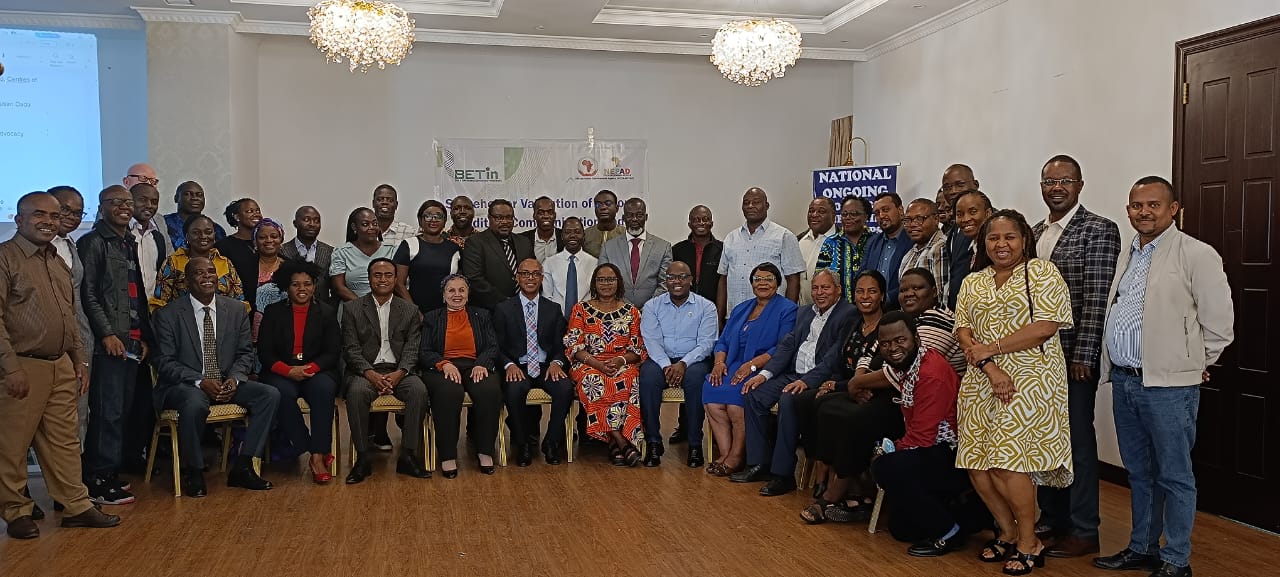|
Getting your Trinity Audio player ready…
|
A three-day workshop kicked off in Addis Ababa, Ethiopia today to validate genome editing training materials and curriculum that will be used at the continental level to communicate new breeding tools and create awareness of the technology meant to optimize African agriculture.
In his welcome remarks, Dr. Kassahun Tesfaye, the Director General of the Ethiopian Bio and Emerging Technology Institute said the application of modern biotechnology in agriculture, industry, health, and environmental protection is believed to greatly impact human lives in the 21st century.
He said many countries consider biotechnology as the technological revolution of the present century along with AI and related technologies.
“As a result of this, Ethiopia embarked on Biotech R&D back in the mid-1980s via a collaborative project between Addis Ababa University and Swedish Universities with financial support from Sida-SAREC. Unfortunately, capacity was not built both in terms of infrastructure and human resources as required.
“Following the Global trends in early 2010, the Government of Ethiopia has identified Biotechnology as a key science sector to address issues of Food and Nutritional Security, Health and Environmental challenges, and enhance the efficacy of local industries,” Dr. Tesfaye said.
He bemoaned the fact that currently, there is little effort to increase awareness of GEd at the regional level.
“However, the level of awareness among regulators, developers, and policymakers about the current developments in biotechnology and its application in different sectors of the economy will directly determine the success of such efforts. Therefore, increasing the level of awareness of regulators, policymakers, journalists, and the general public about the science of GEd and its application in agriculture, is considered a necessary step for its wider applications and use to transform our agriculture. For this to happen appropriate modules and curriculum are critically important,” he added.
Madam Florens Nazare, the Head of the Centre of Excellence of the Science, Technology, and Innovation (STI) at the African Union Development Agency (AUDA-NEPAD) said since the project focus is still at the strategic level, there is a need for creating an enabling environment for the uptake of genome editing by bringing together stakeholders at the policymaking level.
“In addition to the drafters, we brought those stakeholders outside that team of drafters to merge ideas into the modules. Thus the lead team is open-minded in order to come up with fit-for-purpose and context-relevant modules. From time to time, we will review the modules. Definitions from the science group will feed into the other modules. The drafting teams should lead in the delivery of the modules to see where there is strength and need for improvement. Genome editing is fast moving so it should be reviewed at the same speed. AUDA-NEPAD is at the forefront of getting more data about biotechnology,” Mrs Nazare said.
Susan Dada, the Senior Programme Officer of AUDA-NEPAD’s Centres of Excellence said stakeholders are reviewing and validating the final drafts of the training modules that are tailor-made to the needs of the Continent.
“The modules are aimed at providing a standardised and systematic approach for a common understanding of the potential, benefits and risks by different stakeholder groups, as part of the national communication and advocacy exercises on GEd.
“This workshop brings together key stakeholders, including scientists, policymakers, research, development experts, media, as well as private sector representatives from the 8 pilot countries that were involved in producing the final drafts. The review and validation exercise provides a platform to support the finalisation of the modules through a systematic evaluation of the content, structure, and delivery methods in preparation for editing and printing,” Dada said.
